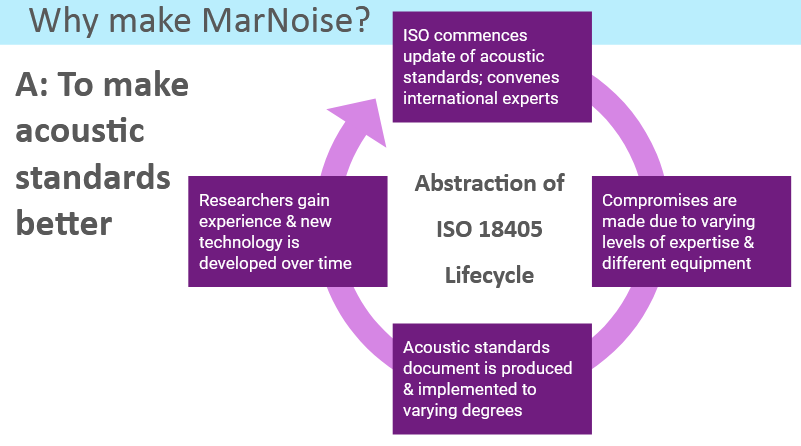
How do underwater acoustic scientists decide what values to measure and publish?
Experts regularly disagree on what measurements are most efficient or relevant for a given study. For example, is it the sound pressure that matters, or perhaps the energy contained in a given sound? Differences may also arise based on the available expertise, person-hours, and computational power available. Small citizen science groups may simply not have the resources to record or calculate certain measurements. Larger groups may lose their expertise due to personnel attrition. Changes in government priorities or scientific advancements may necessitate new measurements or techniques.
When a scientific consensus is finally reached, it may be written down in documents – such as ISO 18405, which defines multiple terms used in underwater acoustics. However, a consensus is also a compromise. More complex elements – subject to disagreement or simply not relevant or attainable for some – may be ignored for the sake of preserving consensus.
We at MERIDIAN are committed to improving underwater acoustic science. One way we can do this is by elevating the expertise of the underwater acoustic scientific community – which in turn means more complex compromises are attainable, improving the quality of a resulting consensus.
This is, roughly, the inspiration for the forthcoming MarNoise project. The name is intended as a contraction of “Marine Noise” and (nearly) shares a name with a historical style of French boat. MarNoise will be an open source Python package for computing multiple key metrics in underwater acoustics. By creating an open source tool – so that it can be audited, modified freely, and implemented wherever it’s needed – to perform complex calculations and transformations, we hope to reduce the amount of time and effort needed to obtain key underwater acoustic metrics, raise the average level of computational power among scientists, and enable more complex science and measurements.
MarNoise is not intended to replace existing tools or packages, of which there are many. To our knowledge, there does not exist a fully open source Python package for this purpose. However, there exist many other tools – of varying code bases and levels of openness – which MarNoise is intended to be comparable to. Its initial focus will be on producing results comparable to these existing tools, then on improving speed and functionality.
The first official release of MarNoise will be by October 1st, 2021. A short internal presentation summarizing MarNoise is available here.